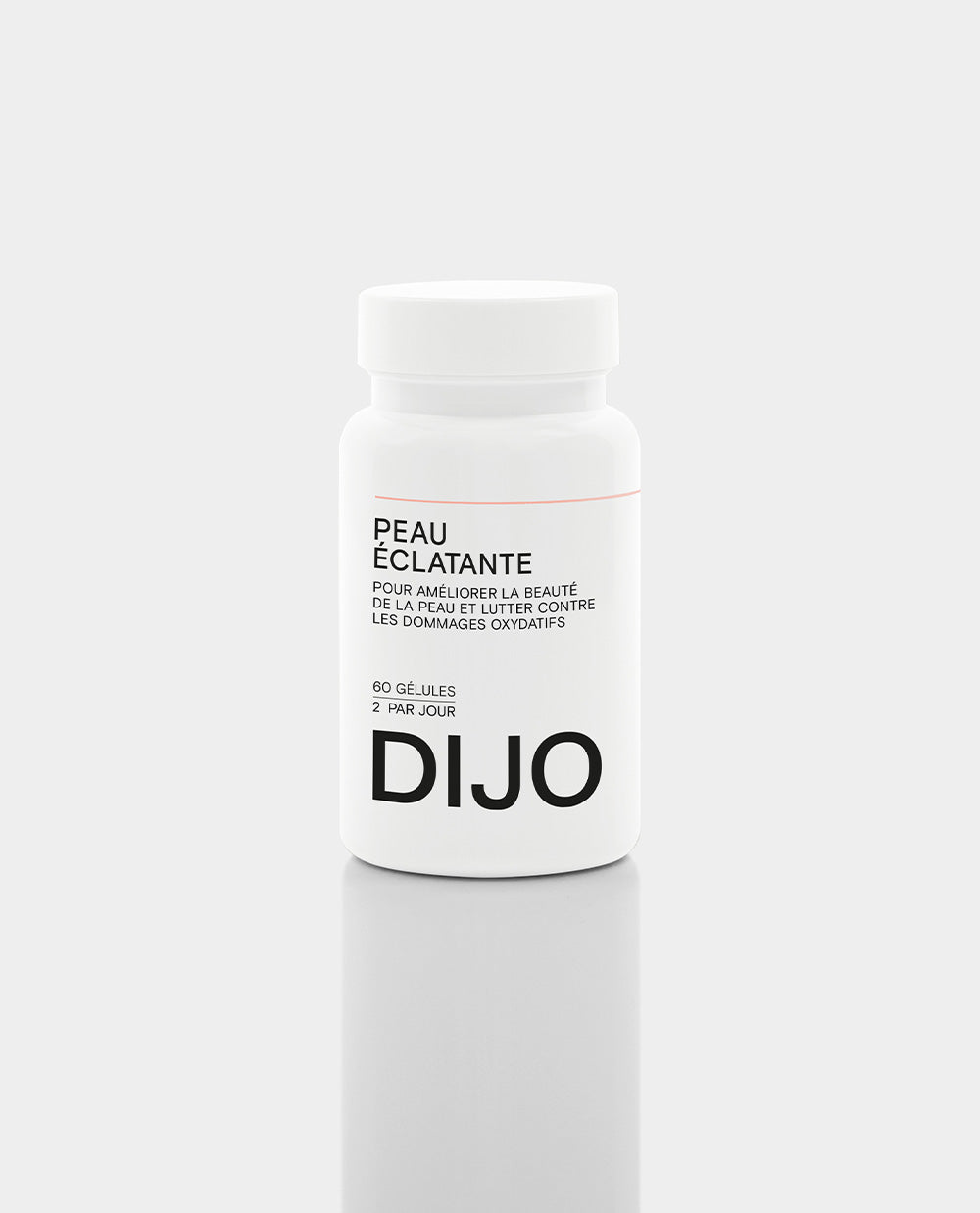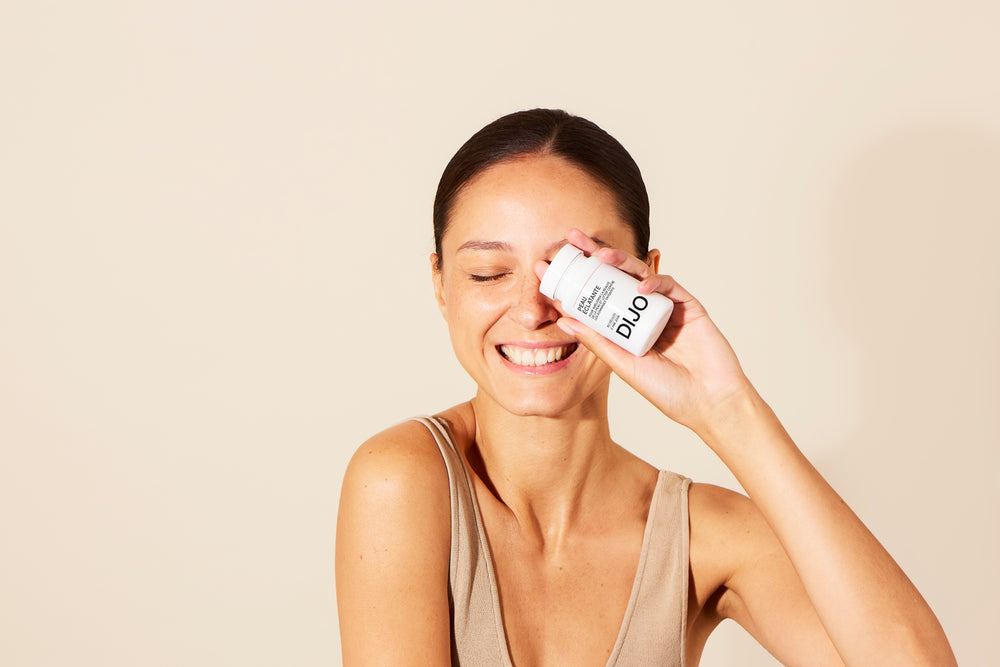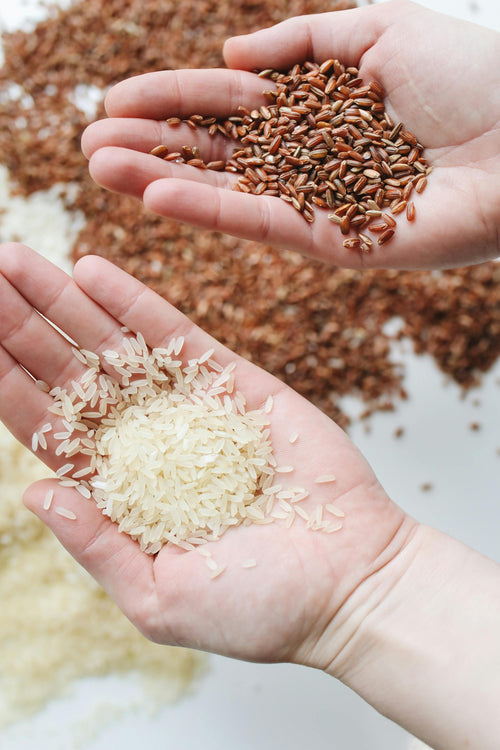The skin constitutes our body's first defense barrier against external elements such as pollution, UV rays and even pathogens. It acts as a physical barrier that prevents these elements from entering our body and causing damage. This is made possible thanks to the numerous micro-organisms that live on its surface. All these little people make up the skin microbiota which, like the bacteria in our stomach, aims to protect us. Researchers have recently highlighted the existence of an intestinal microbiota and skin microbiota axis. These two flora are closely linked and when one is doing poorly, it inevitably has repercussions on the other.
Link between unbalanced microbiota and damaged skin
Our new lifestyles such as processed food, stress and pollution prevent the proper development of our good bacteria. In addition to these daily alterations, it has been noted that they are no longer sufficiently nourished through our diet. All this constitutes the winning combo for an unbalanced microbiota and the inconveniences that accompany it. When the intestinal microbiota is unbalanced, that of the skin is also impacted. This leads to an alteration of the skin barrier which can cause dryness, inflammation and increased sensitivity of the skin. In addition, we can also observe the proliferation of pathogenic bacteria, aggravating skin problems such as acne, eczema and psoriasis.
Thus, it is important to maintain a balanced microbiota for healthy skin. To do this, you must focus on a balanced diet, the consumption of probiotics and prebiotics as well as the use of skin care products that take into account the balance of the skin microbiota.
We don't eat enough fiber!
The good bacteria that make up our intestinal microbiota are essential to keep us healthy. But we often forget that feeding these good bacteria with fiber is just as important to maintain optimal diversity. This is why we now recommend 30 to 40 g of fiber per day. In France, we eat on average 17.5 g of fiber/day* for adults. Only 13% of adults reach the recommended minimum threshold of 25 g/day.
But what exactly are dietary fibers? Dietary fiber is one of the five categories of prebiotics. They help nourish the good bacteria colonizing our intestines. By feeding on these prebiotics, the bacteria ensure their fermentation and in return produce small molecules similar to natural medicines essential to our health. In addition, bacteria that are well “fed” thanks to these prebiotics will develop and persist in our intestines. Dietary fiber is naturally present in certain foods such as fruits and vegetables, oilseeds, whole grains and legumes. An insufficient portion of these fibers in our diet can increase digestive problems. It is therefore important to ensure that you consume enough of it daily.
Take care of your skin from the inside
Taking food supplements containing prebiotics, including fiber, will help optimize their intake to our body but should only be done in conjunction with dietary measures. These prebiotics will help rebalance the microbiota by feeding the “good” bacteria. They will thus be able to develop and be healthy. Furthermore, in order to ensure the effects of a good microbiota on our skin, it is important to also rely on essential ingredients that have proven themselves. This is where marine collagen, hyaluronic acid, as well as an innovative ingredient come into play: N-Acetyl-glucosamine.
1. N-Acetyl-glucosamine
It is the precursor of hyaluronic acid, scientifically recognized as providing softness, elasticity and a plump appearance to the skin.
2. Marine collagen
Particularly well assimilated, it is the main support protein for the skin and ensures the cohesion and resistance of tissues. The reduction in its production by the body over time is responsible for deep wrinkles, hence the interest in filling this gap.
3. Hyaluronic acid
We no longer present it. The skin's main water reservoir, it is a real sponge. Together, collagen and hyaluronic acid help fight against skin aging, promote skin hydration and reduce wrinkles.




















